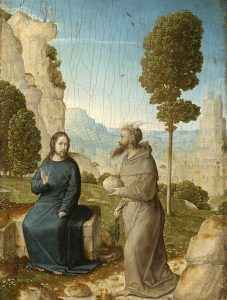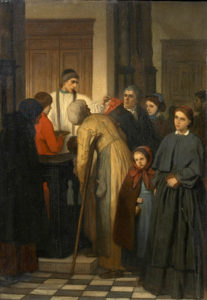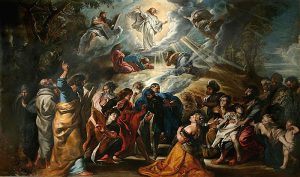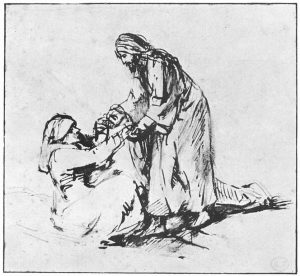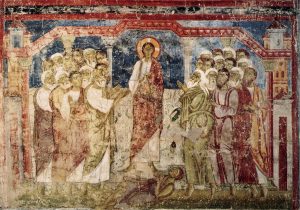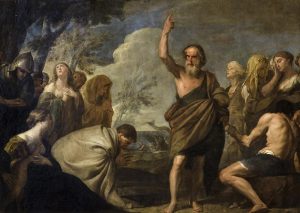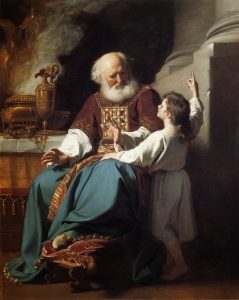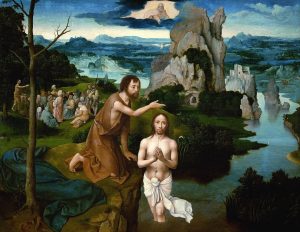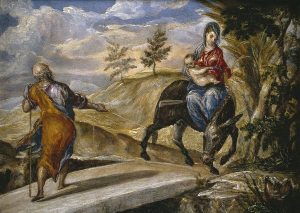Thoughts on Sunday’s Lessons for Feb. 28, 2021
First Reading: Genesis 17:1-7, 15-16
The lectionary readings for Lent continue recalling God’s covenants with the people.

Abraham, Sarah and the Angel (1520s), oil painting on panel by Jan Provoost (1462-1525 to 1529). The Louvre, Paris. (Click image to enlarge.)
This week our attention turns to Abram and Saraai, the Aramean couple called by God to go to a new land at a great age. God gives them new names – Abraham and Sarah – and promises that they and their offspring will yield a great multitude of nations. This seems surprising, since Abram is 99 and they have had no children, but all things are possible with God. In contrast to the unconditional covenant with Noah, the covenant with Abraham requires reciprocity: In order to gain the Promised Land (a promise made in verses that the lectionary reading skips over), Abraham and his people are to “walk before God and be blameless.”
Psalm: Psalm 22:22-30
Today’s Psalm repeats the theme of God’s covenant from Abraham and Sarah through their son Isaac and grandson Jacob, who God later renamed Israel. The Psalmist exults in the eternal nature of that covenant, shouting thanks and praise that Jacob’s descendants will serve God and will be known as God’s own forever. Even today we remember those words in baptism, when those being welcomed into the household of God are anointed with blessed oil, sealed by the Holy Spirit and marked as Christ’s own for ever.
Second Reading: Romans 4:13-25
Paul recalls God’s eternal promise to Abraham’s descendants in his letter to the people of Rome, but he adds something new: He extends that covenant to include Gentile Christians as well. While Abraham’s descendants received God’s covenant through the law, Paul writes, the Gentiles who become Christians now receive it through their new faith. Seeking to unify a faith community in Rome that included both Jewish and Gentile Christians, Paul assures them that all are now children of Abraham and Sarah through faith in Jesus’s death and resurrection.
Gospel: Mark 8:31-38
In Sunday’s Gospel we find Jesus telling the disciples things that they do not want to hear. In the verses just preceding these, Jesus asked them who they think he is, and bold Peter blurted out, “You are the Messiah!” Now, Jesus warns that the road ahead will not be easy. He will face rejection, punishment and death before rising again after three days. Peter argues with Jesus, taking him aside to challenge that approach, but Jesus’ quick response to Peter is startling: “Get behind me, Satan!” If you want to follow me, Jesus tells them, you must deny yourself. Take up your cross. You will have to give your life if you wish to save it.

